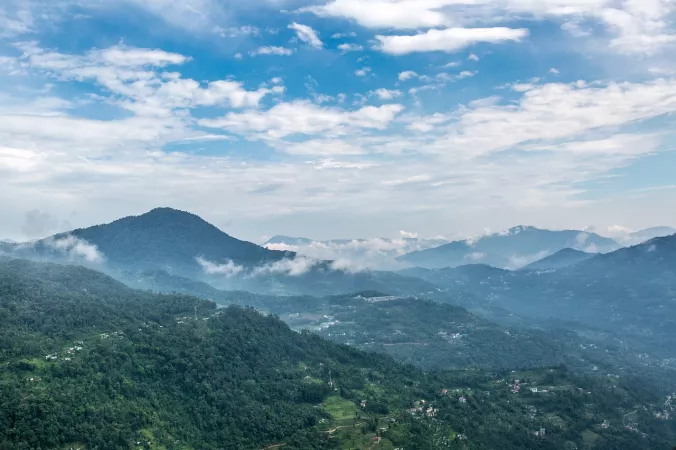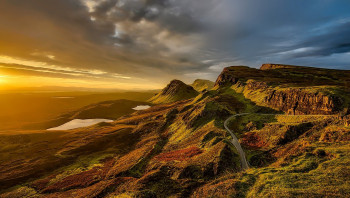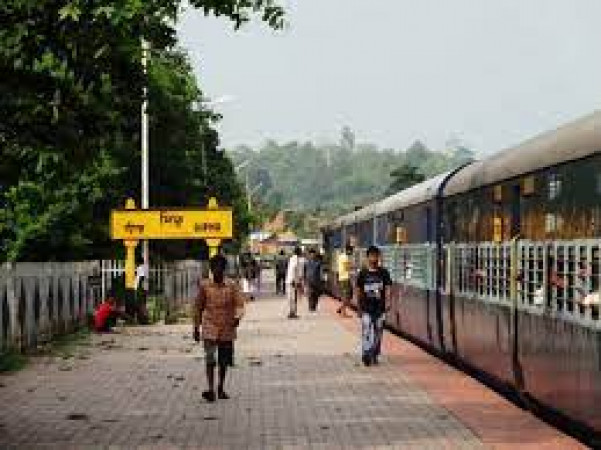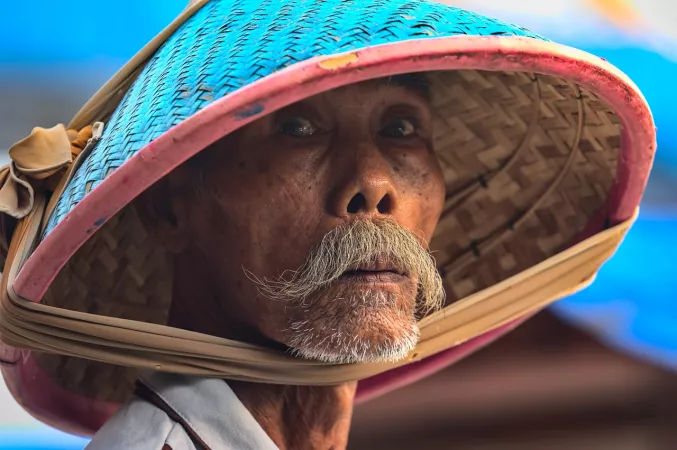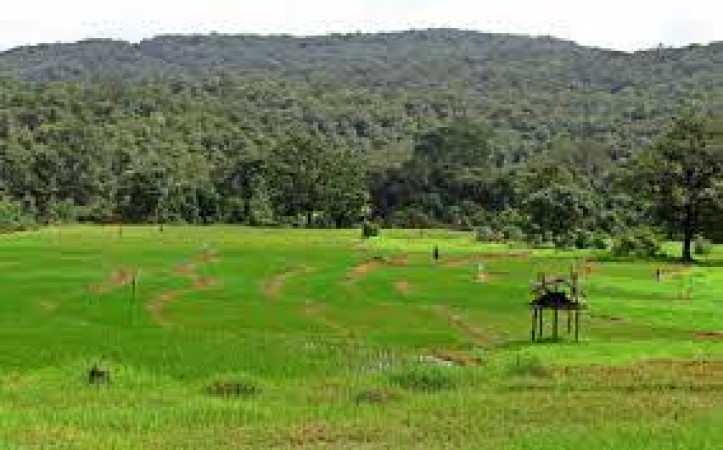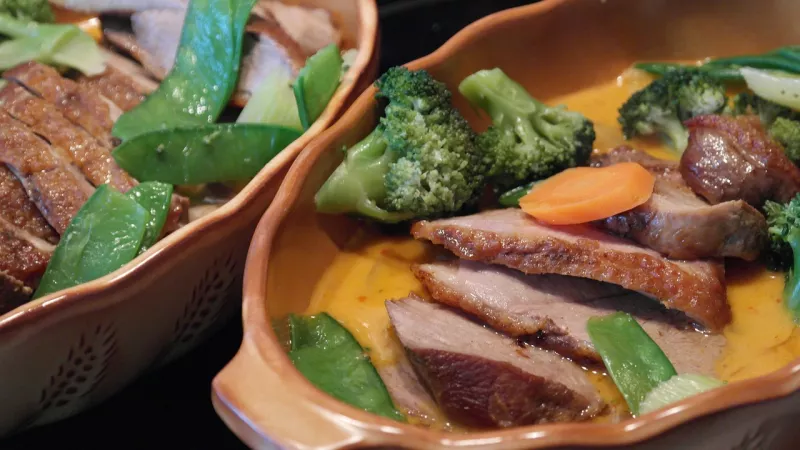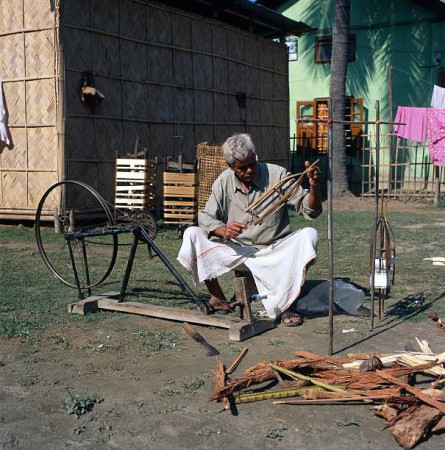Haflong Travel Guide
Haflong, located in the heart of Assam, India, is a charming hill station known for its picturesque landscapes and vibrant culture. Nestled amidst the rolling hills of the Dima Hasao district, Haflong offers a unique blend of natural beauty and cultural richness. The town is home to diverse indigenous tribes, each contributing to its rich tapestry of traditions. Haflong is famous for its lush greenery, serene lakes, and pleasant climate, making it a popular destination for nature lovers and adventure enthusiasts alike.Top Attractions in Haflong
1. Haflong Lake 2. Maibong 3. Jatinga 4. Fiangpui Garden 5. Haflong HillHaflong is Famous for
Its breathtaking natural beauty and vibrant indigenous culture.Top Attractions in Haflong
- Haflong Lake - Maibong - Jatinga - Fiangpui Garden - Haflong HillWhat's Great about Travelling to Haflong?
- Tranquil and serene environment - Rich indigenous culture - Stunning views of the hills and lakes - Ideal for nature lovers and adventure seekersWhat's Not So Great about Travelling to Haflong?
- Limited accommodation options - Limited public transportation - Remote location may not be suitable for those seeking a bustling city experienceTravel Tips for Haflong
- Check visa requirements before traveling - Renting a car is advisable for convenient transportation - Respect the local customs and traditions - Carry necessary medications and essentialsImportant Haflong trip information
- Ideal Duration: 3-4 days
- Best Time to Visit: October to March for pleasant weather
- Nearby Airports and Railway Stations: The nearest airport is in Silchar, and the closest railway station is in Lumding.
Per Person
18,000
*EXCLUDING APPLICABLE TAXES 5.0 Ratings
( 215 Reviews )
( 215 Reviews )
FAQ's on Haflong
Q1: What is the best time to visit Haflong?
The best time to visit Haflong is during the winter months from October to March when the weather is pleasant and cool. This period is ideal for exploring the lush greenery, enjoying outdoor activities, and attending local festivals.
Q2: Do I need a visa to travel to Haflong?
vary depending on your nationality. Most visitors will need a tourist visa to enter the country. It is advisable to check with the embassy or consulate of the country you are traveling from for specific requirements and any exceptions.
Q3: What are the must-visit attractions in Haflong?
Haflong, known as the "Switzerland of the East," offers stunning natural beauty and attractions like Haflong Lake, Maibong, Jatinga Bird Observatory, and the scenic Dima Hasao district. Don't miss experiencing the vibrant culture of the indigenous Dimasa people.
Q4: Is Haflong a safe place to travel?
Haflong is generally safe for tourists. However, like any travel destination, it's important to take precautions. Avoid isolated areas at night and be cautious of your belongings. Always follow local advice and stay informed about any potential risks.
Q5: What is the local currency in Haflong and can I use credit cards?
The local currency in Haflong is the Indian Rupee (INR). While major establishments accept credit cards, it's advisable to carry cash for smaller transactions. ATMs are available in urban areas, but may be limited in more remote locations.
Q6: What is the local cuisine like in Haflong?
Haflong offers a diverse culinary experience with dishes like bamboo shoot curry, smoked pork, and various tribal delicacies. Vegetarian options are also available. Don't miss trying the local Assamese tea and traditional sweets.
Q7: What transportation options are available in Haflong?
Transportation in Haflong includes buses, taxis, and auto-rickshaws for local travel. Renting a car or hiring a private driver is also a convenient way to explore the region. Train services are available to nearby cities.
Q8: Are there any cultural norms or etiquette I should be aware of when visiting Haflong?
Respect local customs by dressing modestly, especially when visiting religious sites. Greet people with a polite "Namaste" or "Salaam" and ask for permission before taking photos of individuals. Avoid public displays of affection and follow any specific cultural practices you encounter.
Q9: I am a travel agent. How can I buy travel leads of Haflong?
Register yourself as a travel agent at agents.tripclap.com and then you can buy travel leads to Haflong once your account is approved. For more details contact our support team at +91-8069186564 or support@tripclap.com
